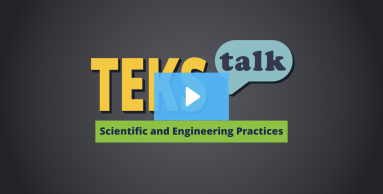- Science
- Grade 2
- Scientific and engineering practices
Science.2.1.E
collect observations and measurements as evidence;

Knowledge and Skills Statement
Research
Minogue, James. “A Lemon of a Lesson.” Science and Children 45, no. 6 (February 2008): 25–27. http://www.jstor.org/stable/43174215.
Summary: “A LEMON OF A LESSON.” outlines an activity teachers can use to help students practice making meaningful observations. Students will observe an item they are most likely already familiar with, a lemon. Students will use magnifying and measuring tools to help with their observations. The lemons provided should be similar in size and shape to encourage students to make detailed and accurate observations. Students will spend 10-15 minutes making observations and drawing their lemon. The teacher should monitor progress during this time and ask guiding questions to help students make observations, including recording measurements. After recording their observations, the lemons will be spread around the classroom, and each student will try to find their lemon using the observations they made earlier. After the activity, discuss what was most helpful in finding their lemon as a class. This will help students understand that specific details and measurements are most helpful in identifying an object.
